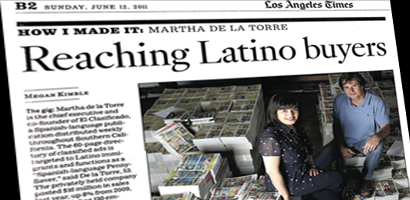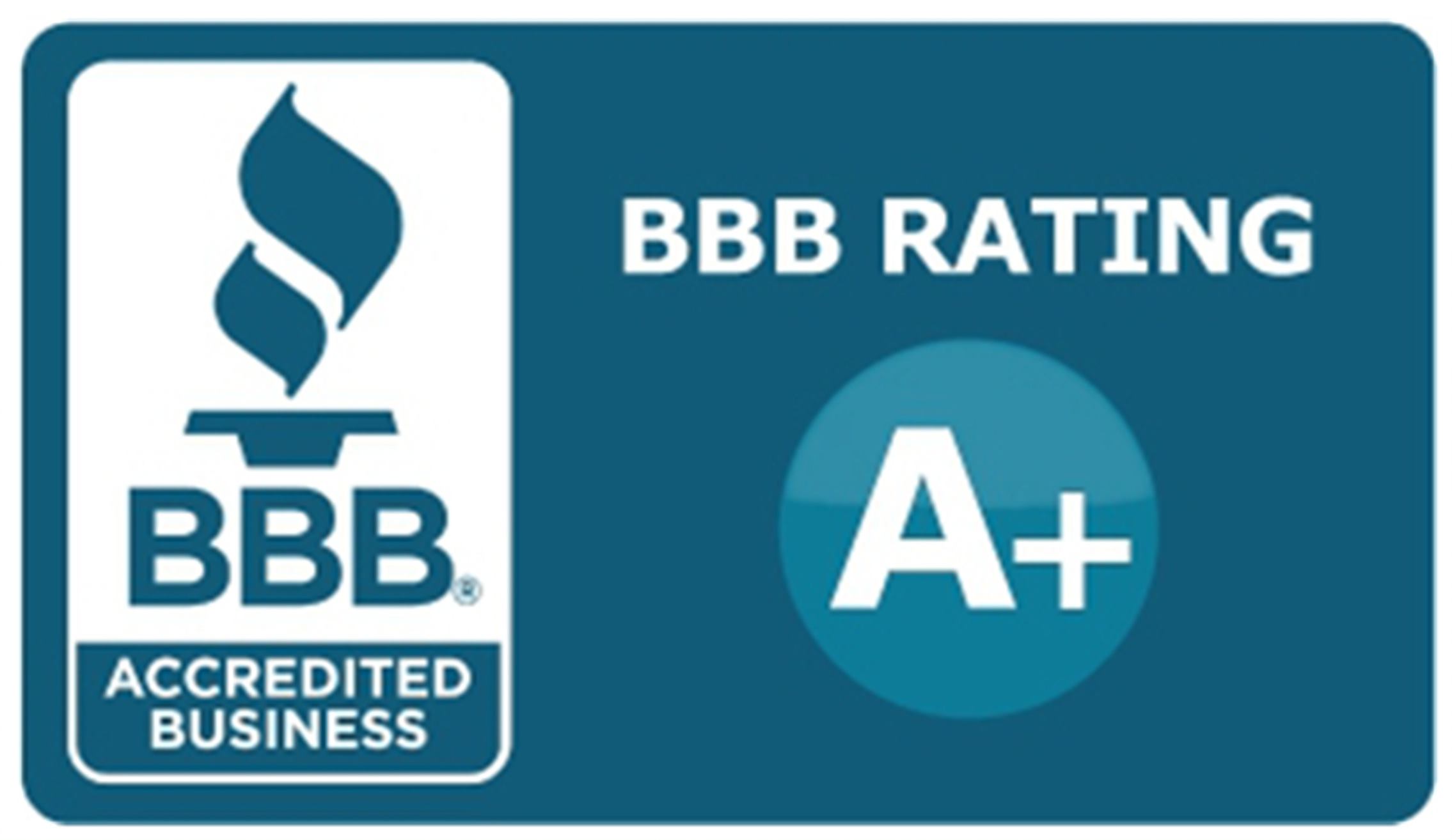
The husband-and-wife team are featured in the prestigious Los Angeles Times’ “How I Made It” column.
HOW I MADE IT: MARTHA DE LA TORRE
Reaching Latino buyers
Martha de la Torre is the CEO and co-founder of El Clasificado, a directory of classified ads that is targeted to Latino immigrants and functions as a ‘Spanish-language PennySaver.’
By Megan Kimble
Article appears in the Los Angeles Times on June 12th 2011 – Business Section
The gig: Martha de la Torre is the chief executive and co-founder of El Clasificado, a Spanish-language publication distributed weekly throughout Southern California. The 60-page directory of classified ads is targeted to Latino immigrants and functions as a “Spanish-language PennySaver,” said De la Torre, 53. The privately held company posted $16 million in sales last year, up 8% from 2009, she said. It has 130 employees.
Reluctant entrepreneur: Born to Ecuadorean immigrants who settled in the South Bay, De la Torre enrolled in Loyola Marymount University’s accounting program. There a classmate told her he wanted to be an entrepreneur. “I thought that was crazy. Why would I risk my college education when my parents struggled to get over here and establish a new life for us?” she said.
Spotting the market: De la Torre joined a large accounting firm whose clients included La Opinion, the Spanish-language Los Angeles daily. While working there she noticed that many readers bought copies of the newspaper to peruse the job listings. “I saw the Hispanic market was growing and thought there was a market in classifieds,” she said.
Bad timing: De la Torre founded El Clasificado in 1988 with her husband, Joe Badame, who is now chief operations officer. The young company was still struggling when the early 1990s recession hit. “We really should have gone bankrupt,” De la Torre said. She did consulting jobs on the side to keep the business afloat. Still, she was discouraged. “I just wanted to pay off the debt and the stockholders and walk away from the company,” she said.
“A” students only: Instead of quitting, she got creative. In 1993, El Clasificado was struggling to pay its employees but needed more workers with computer skills. De la Torre called the work-study office of nearby Garfield High School and asked for “A” students only. “They were so happy to be here, and they could type so fast! We could pay what was affordable to us, and they could walk [here] after school and get office experience,” she said. Three of those students, hired almost 20 years ago, are now managers with the company.
Listen to your staff: Initially El Clasificado was distributed directly to homes. “It was costly and ineffective,” De la Torre said. She consulted her “best focus group” — her employees — who suggested putting racks in grocery stores. “They told me, ‘Latinos like to walk every day to the store. They like fresh food every day. It’s their outing.'” The first racks went into supermarkets in 1995, and “all of a sudden El Clasificado started getting results for the advertisers,” De la Torre said. Today 4,000 businesses advertise in the 460,000 copies printed weekly.
Working the Web: With print classifieds migrating to the Internet, De la Torre launched elclasificado.com in 1996. Although the site generates only 5% of the company’s revenue, it gets 5.9 million page views a month. Despite a slew of competitors, including Craigslist, elclasificado.com has grown by offering categories targeted to Latinos, including quinceañera planning, immigration services and mariachis for hire. De la Torre is also eyeing young Latinos, who are increasingly accessing the site from their cellphones; mobile devices account for 18% of online traffic.
Family affair: The husband-and-wife team have learned to respect each other’s differences. But that doesn’t mean they leave it all at the office. “We love our business, and we talk about it morning, noon and night,” she said. De la Torre and Badame live in Rancho Palos Verdes and love to travel. They’re planning to vacation in France this year.
Advice: “You have to always look at what’s not working right in your company and face it. Our customers aren’t afraid to tell us what’s wrong,” De la Torre said. “I think what makes us strong is that we acknowledge that we’re not perfect. We’re always asking [others], How would you do this?”
Read the article at source: latimes.com





